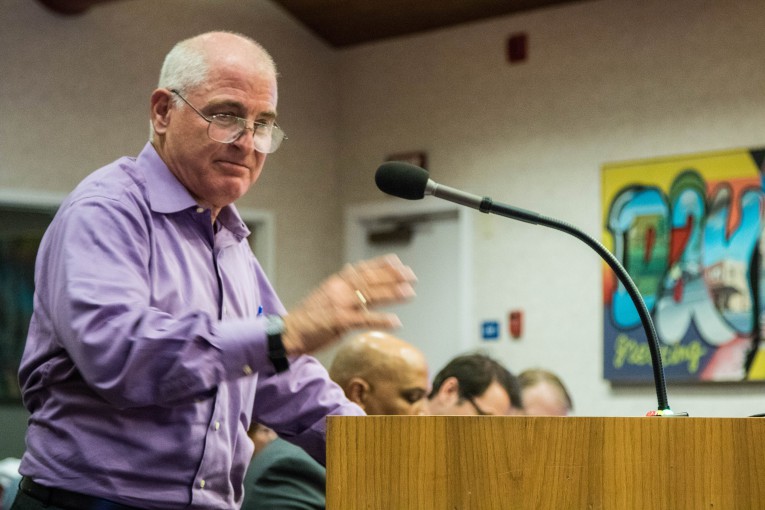
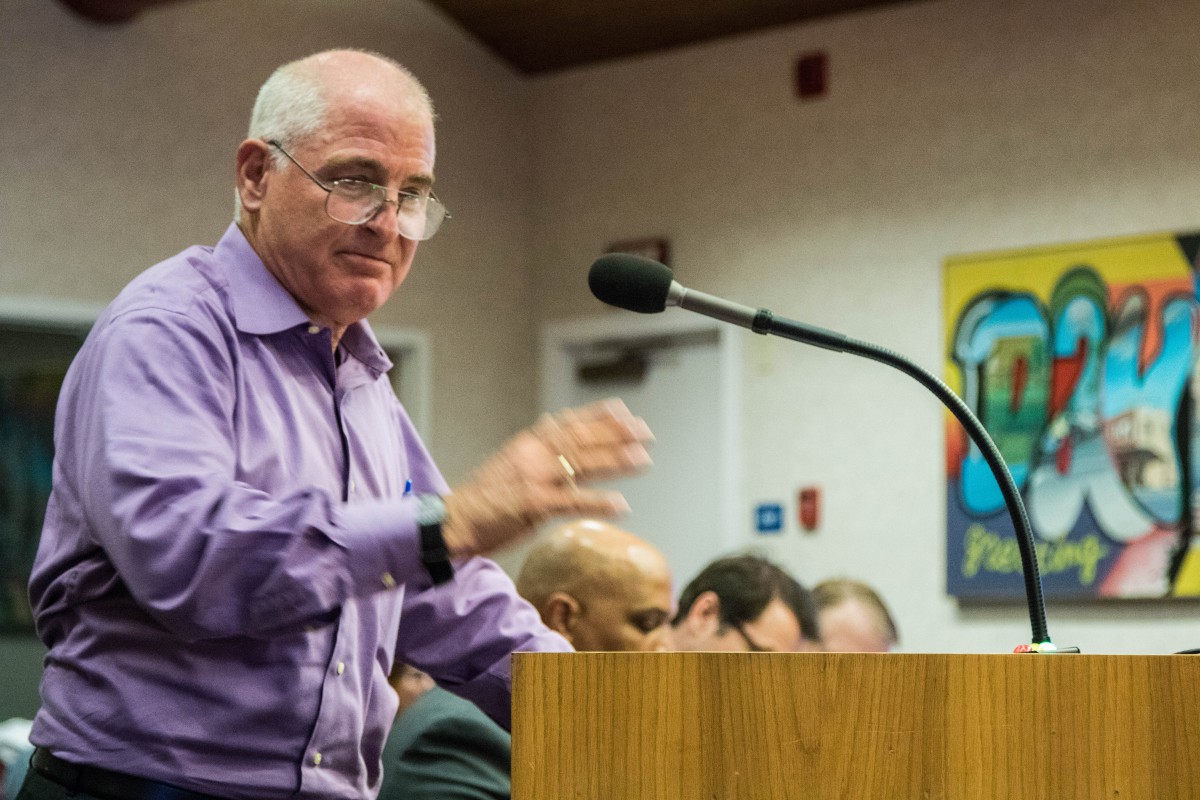
How can we build more durable consensuses?
By Alan Hirsch
Davis has twice as many commissions compared to most cities our size, and more than the city of Sacramento with ten times the population.
With all this extra public process overhead and citizen involvement hardcoded in our city, you would think we would be able to build durable consensus on things.
Yet, even after massive numbers of commission meetings held on the four Measure J/R projects… and 5-0 council votes…they failed. Failed to build consensus among a significant group of opinion leaders in our community, and they reflected of real concern so were able to organize a grassroots effort to block passage of 3 out of 4 times.
Insanity is doing the same thing over and over. if we are going to get more housing built—and improve our tax base– we need a better way to build a durable consensus in the community,
The current commission-dependent process is clearly not doing this.
Below are my public comment slides where I urge the city council to question the status quo process and investigate other alternatives to being exclusively dependent on city Commissions for public involvement and consensus building.
I ask for three reasons:
1) Formal Commissions are limited by the Brown Act that favor radical transparency over encouraging public dialog and consensus building, and involvement of stakeholders.
2) Davis staff is overly conservative in its interpretation of the Brown Act in regard to public engagement in meeting for example, they often forbid chair from having a dialog, Q &A with the public or experts in the audience… even when there is only one member of the public present.
3) Other cities in California use processes that are not constrained by the Brown Act in terms of listening to engagement and dialog.
As many activists will tell you, Brown Act, at least as enforced by city staff, often feel; like it is used to limit community involvement in the public process. It certainly discourages drop in expert involvement from University faculty or issue specialists. And many stakeholders and activists have opted out of commission as they see how staff uses it.
If community input was truly valued, why are documents submitted by the public to commissions rarely if ever memorialized as public documents or in minutes? And why has the city not made it a right and encouraged the public to include visuals with their presentation? Instead, the city manager’s position is that slides will be allowed only if it is convenient.
Many have noted city staff allows more permission Interpretation of the Brown Act is taken with regard to the city council than commission members. Consider the secret Carson-driven “2nd staff report” we learned about recently — sent by staff to council for years with no public disclosure, or commission are rarely told about technics city council members used like Ad Hoc subcommittees or Brown Act buddies during Brown act training.
This review of the city process would be timely as we are beginning the General Plan rewrite.
I prepare the below public comment slides based on my personal experience trying to get change in Tree Program vis the Commissions. It is now 16 years, and over 100 public comments at council and tree commission meetings, and still no tree ordinance after 3 drafts —but the process has burned out the city arborist who quit. These comments are also based on a coffee I had with a former city council person (at another city) and now Davis’s new assist public works director Jeremy Ferguson. He suggested there are other ways to do public participation, engage in collaboration between staff and citizens, and build robust consensuses than via the unusually large number of commission hearings we have.
I ask the city council at the meeting of January 17th to take the first step- put this issue on a future meeting agenda so they can at least talk about it. (This delay is an artifact of the Brown Act that slows down change and limits dialog.)
I am hopeful that future meeting council will empower a ‘task force” that is inclusive, made up of often competing stakeholders in town to rethink how we can get things done.
While I believe the task force should be the most effective if practices transparency and openness, I note that that there is no “law” that requires city staff involvement or leadership, or that it must follow all the one-size fits all regulations of the Brown act. The fact is this task force, like an ad hoc City council subcommittee, could legally meet in secret as it has no legal power. Council should let its members decide how much formality/openness will contribute to a productive outcome—i.e., a good recommendation to the council.
The old way is not productive. Let’s consider something new.
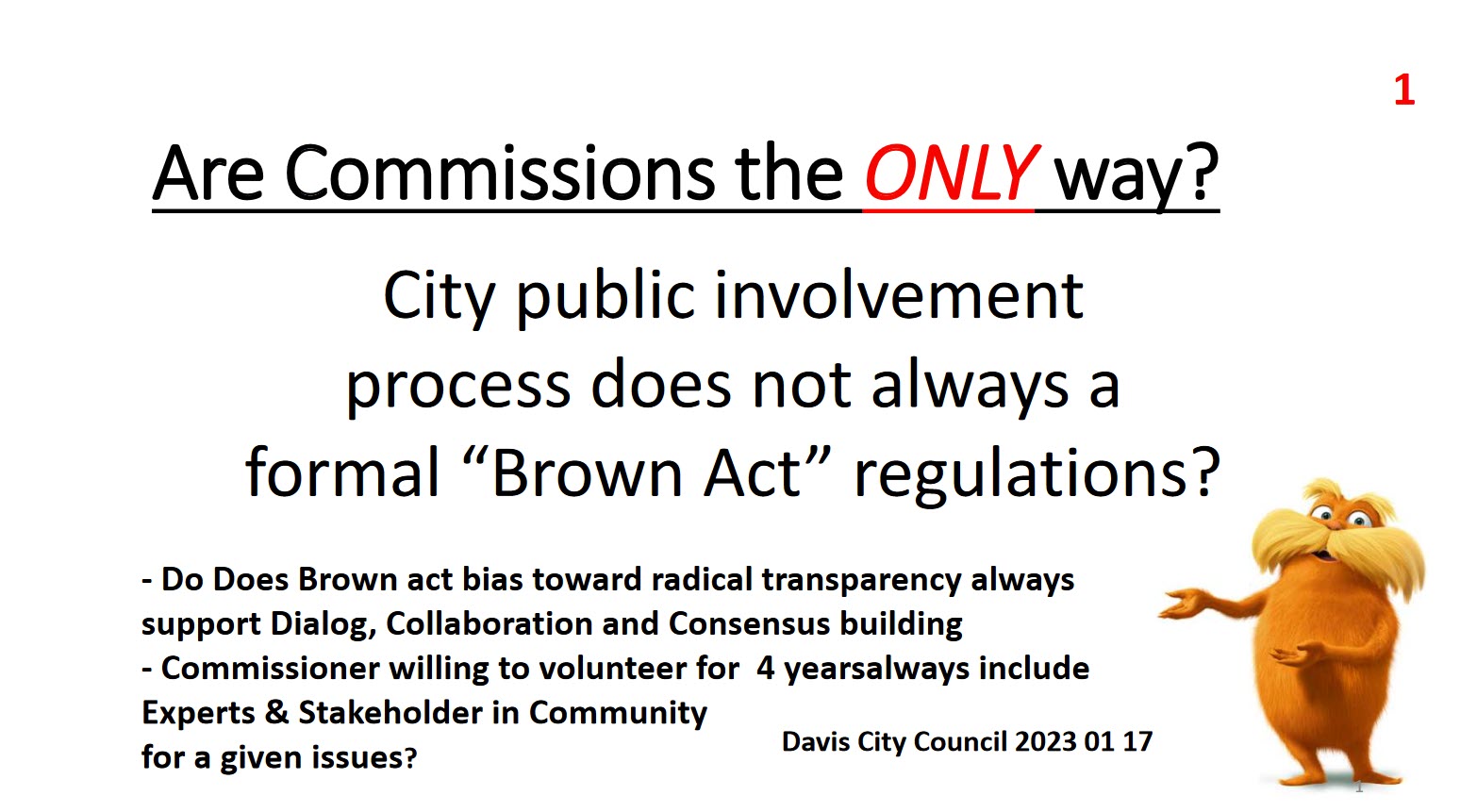
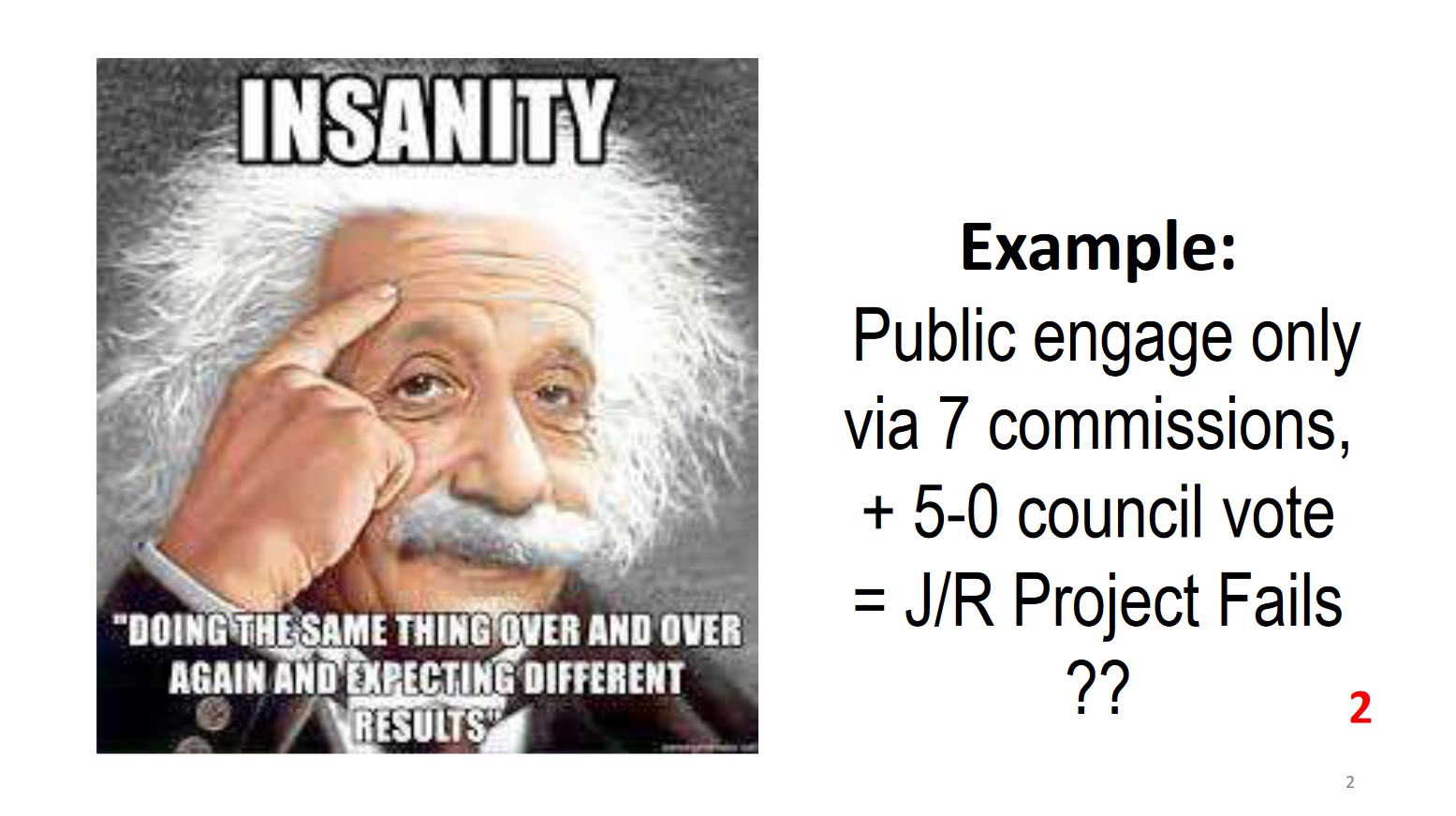
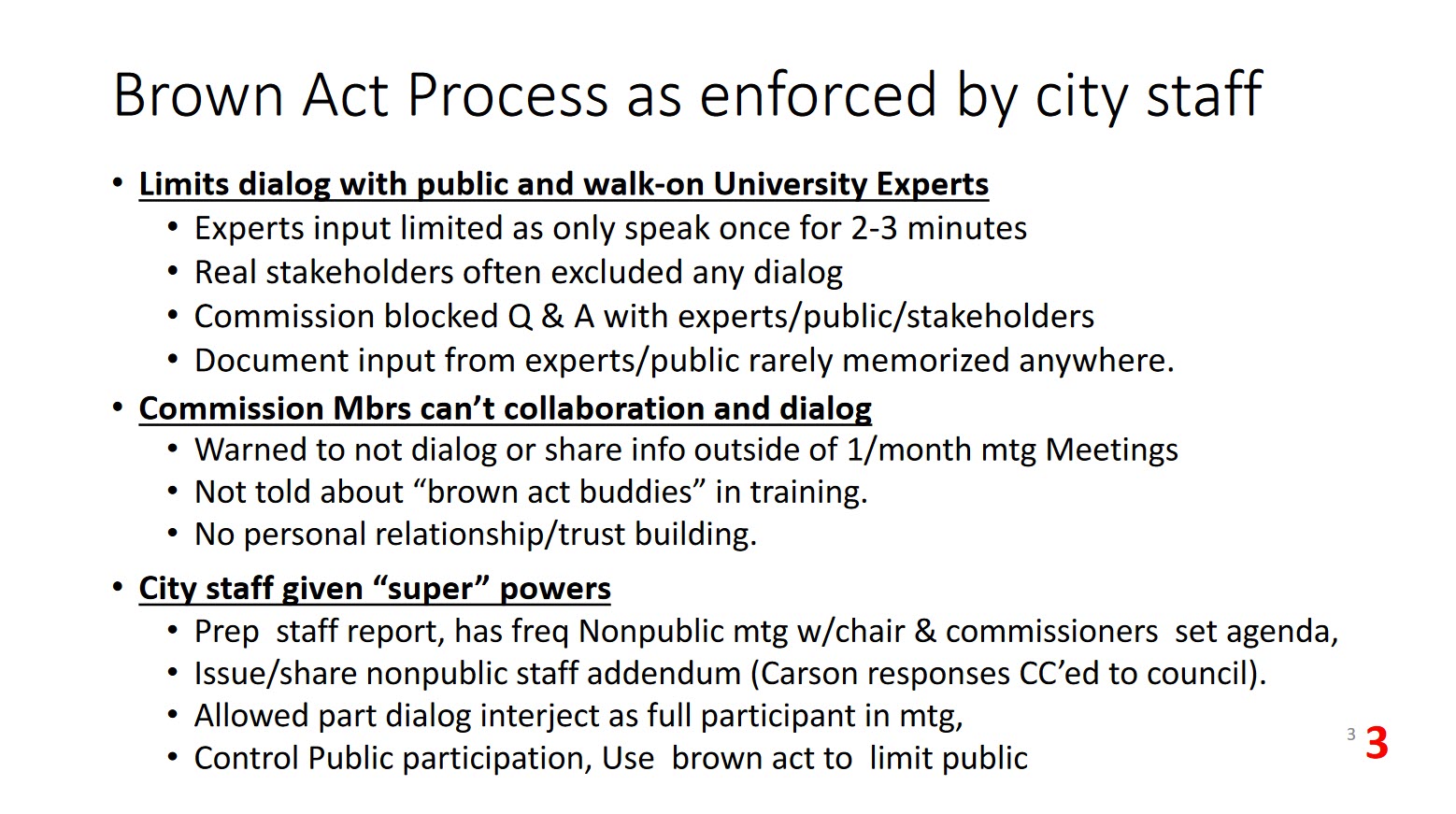
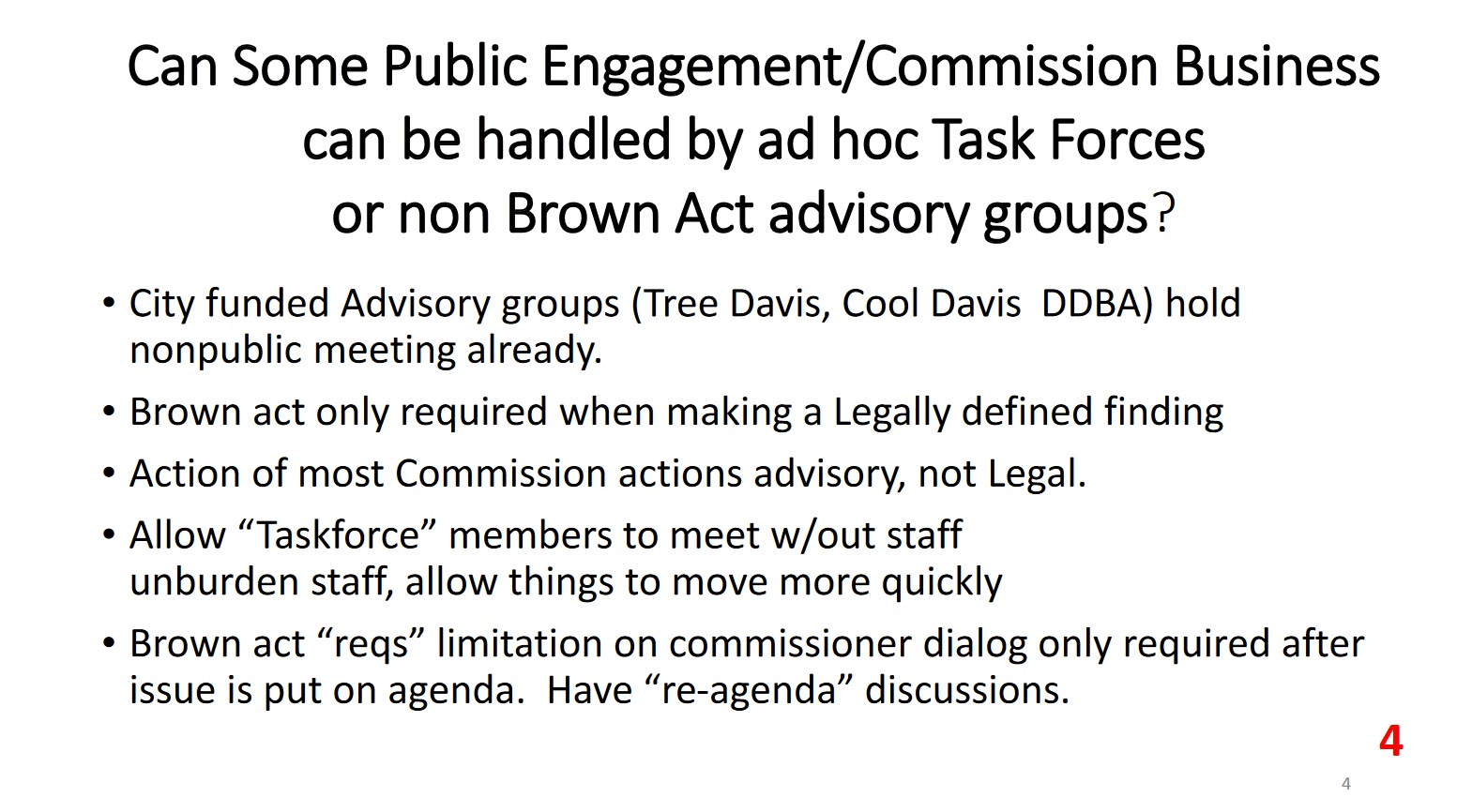
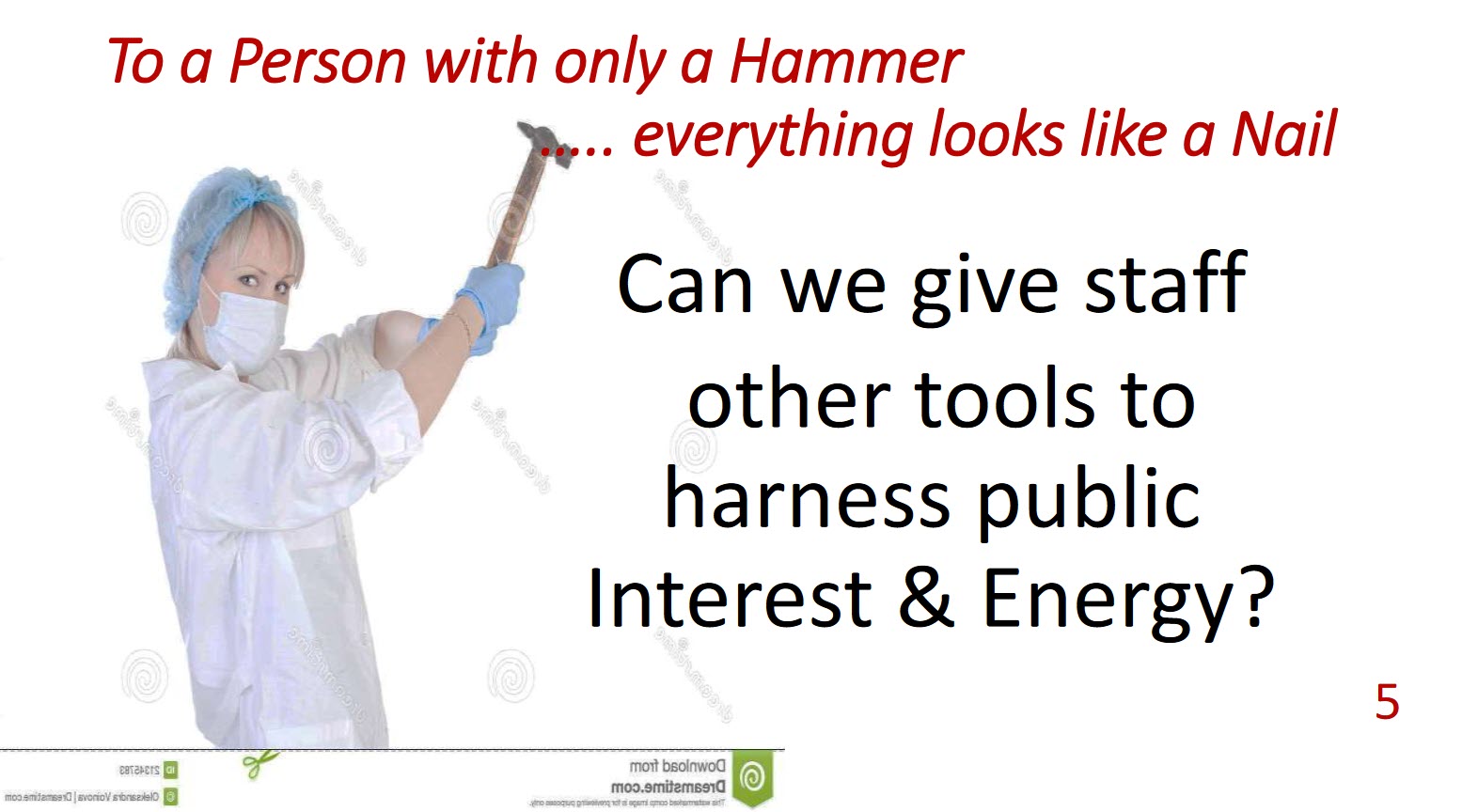
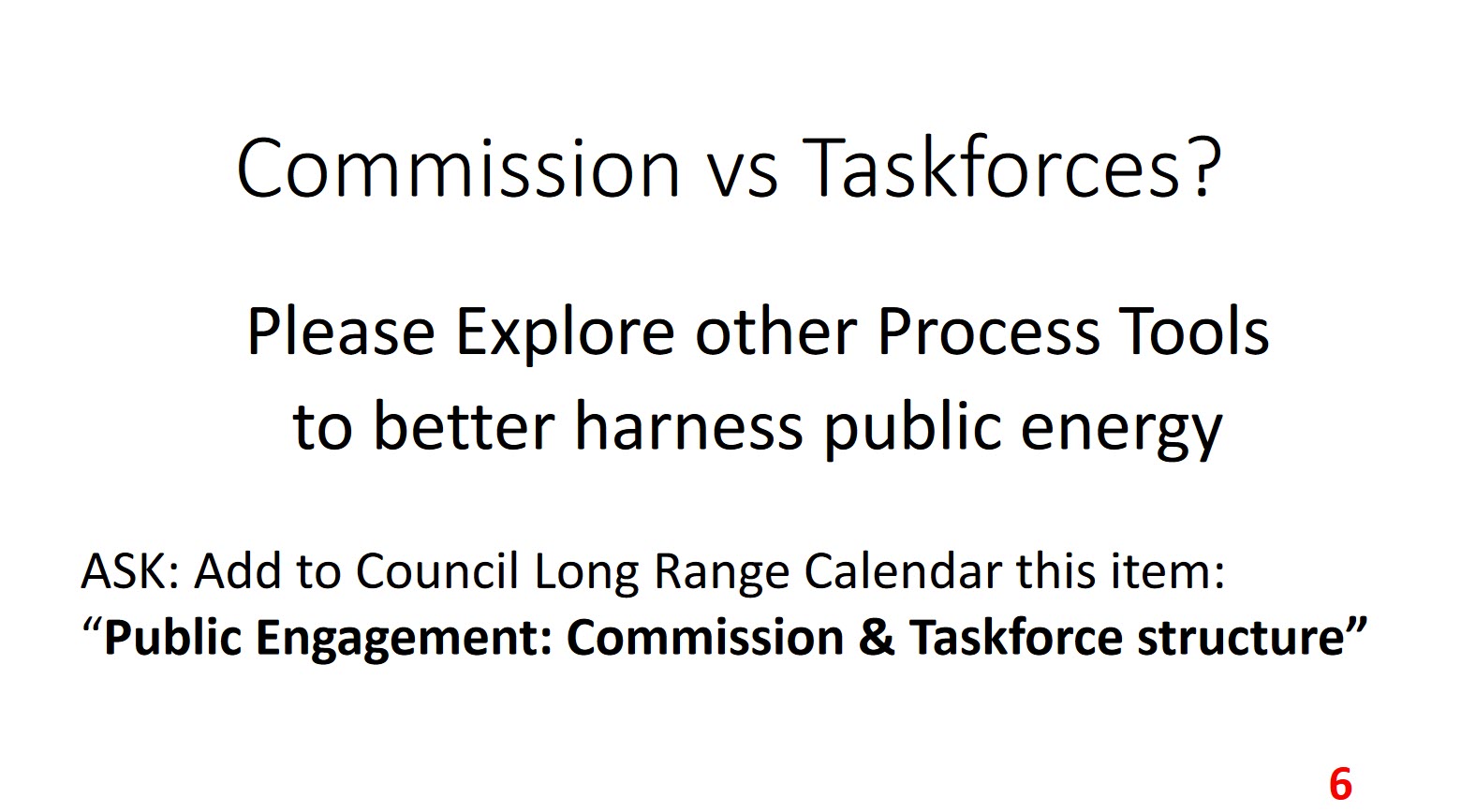 Alan Hirsch self identifies as the Davis Lorax and follows tree and transit issue in our community.
Alan Hirsch self identifies as the Davis Lorax and follows tree and transit issue in our community.

“The old way is not productive. Let’s consider something new.”
Actually the old way, where citizens had a narrow window to collect signatures to demand a referendum, was much more productive. Under Measure J we have made it too easy for the most conservative voices to do the easiest thing in California politics, get people to vote down a ballot proposal.
I spoke with someone during the Disc election, who claimed to be the author of Measure J, about this and he told me the old way was too much work.
I agree that things aren’t working but I disagree as to why.
Many of us who have been on commissions and participated in City processes would echo Alan’s observations and sentiments. Alan is putting forward a creative means of addressing this problem that has led to increased narrowing of citizen participation and deliberation.
The commissions are tied up by the Brown Act. City staff repeatedly run out of band-width to engage the public. Alan is visiting territory that I and others have pointed out to the City. I have had individual, City of Davis interpreted Brown Act approved, conversatins with Council Members agreeing to the need for new approaches. The long name “Improved Davis Decision Making” effort that began 3 years ago, remains available to the Council and to Commissions.
Alan’s, asking the city to partner with the public to shed some of what is not working and act to try things that might. Alan’s point is essential. We can’t keep doing things that don’t work.
Richard and I have seen the things from the same and comparable vantage points in recent years, and I agree with his comment. What I am seeing now is that some admirably pro-active citizens have more effective outreach to voters on issues they personally care about than do our elected leaders. That is cause for concern. Maybe the problem we are seeing is broader than that. Maybe not. Either way, it’s fair to ask how Measure J is impacting goals most of us could agree on. Perhaps a task force could start there and, if successful, be asked to take on broader issues of the city’s advisory process.
Coming to this discussion late…
But I think that there is a little bit of irony about making this presenation and comments to the city at city hall…
I have been one of the people calling for a citizen led planning process, and I never ONCE thought about asking city hall for permission or a charter.
Community consensus is community consensus. I totally agree that an unofficial, citizen led process is the only way its going to get done…. but asking for permission from the same people who really dont want to do anything controversial… is failing to learn the lesson you are teaching.
lets just do it. I have been talkingi to a lot of people who agree that we need a citizen-led process. But I’m not in a position to be the sole leader of the charge to do that myself… Lets just get it done.